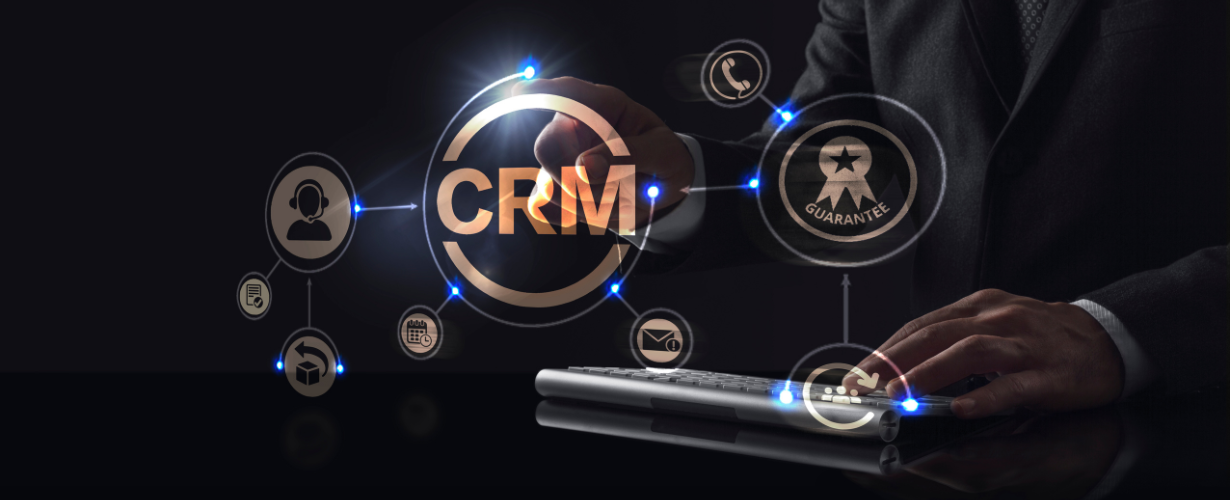In my last blog, I reflected on history as we observe the state of the world today. Let’s now examine how our future actually depends on the sales profession and its impact on society.
Threat to the Middle Class
The economic instability of today’s environment in the West, while many parts of the world experience growth and stability, is resulting in the steady decline of the middle class while a small minority continues to grow richer. This trend leads to the instability in society that we’re seeing now, and will continue to see, if we don’t address the issues causing it.
In our last article, we compared the present with the Reformation of the 16th century. The Reformation was a major movement in 16th-century Europe that posed religious and political challenges to the Catholic Church and the authority of the Pope. This comparison was made to explain the changes in our society from a unipolar to a multipolar world with no clear outcome.
Today, similar to the Reformation, we have very stable and good infrastructure in our cities compared to other times in history. During the Reformation, cities in Germany (then known as the Holy Roman Empire) were flourishing. The economic situation in the Empire was very positive, mainly due to the exploration and resulting trade with the New World (the Americas). The bourgeoisie was also very successful at this time.
However, the Reformation led to what became known as the Thirty Years’ War, one of the bloodiest conflicts in European history, fought between Protestant and Catholic European states from 1618 to 1648. This war destroyed Europe’s positive and successful areas, leaving between 4.5 and 8 million people dead and reducing the population of areas around present-day Germany by over 50 percent. If we do not realize what is at stake, this is the danger we face today.
Comparison with Today
At Pipeliner, we’ve been very interested in the role of salespeople, simply because salespeople make up a significant portion of the middle class. Keep in mind that half of the working population is in a related sales situation. The more we shrink the middle class, the more unstable society becomes.
Today, a small part of society—like the ruling class, many lobbyists, and especially some industries—imposes their will on the rest of society. In many ways, we are powerless to do anything about this (what we could or should do, peacefully and with clear protest, would be a separate article).
Members of the older generation who amassed fortunes would probably find the incredibly rapid rate at which fortunes are made today unthinkable. A tiny number of people are making billions in a very short time as never before.
They would also find it inconceivable, as would just about any sane person, that the Pentagon can mysteriously overestimate $6 billion in military aid to Ukraine and suddenly find itself with a $6 billion surplus. The government and politicians are talking about billions, even trillions—staggering amounts of money that most people, struggling with simple dollars and cents, cannot even imagine.
Much of this money is not only wasted, it’s totally corrupt. As this much corruption becomes known, people’s tolerance for it becomes less and less, to the point where the government is worried that people will stop paying taxes because the money is so wasted, as we can now see from the riots in France and other cities. Interestingly, the IRS recently announced hiring even more agents to continue controlling tax revenues.
Win Together
At Pipeliner we have created the slogan “Win Together.” This is a very realistic approach to sales, deeply rooted in the anthropology of the Austrian School of Economics. Why “Win Together”? Because if only one side of a sale wins—only the seller or only the buyerBuyer A buyer is an individual or organizational entity that purchases a product or subscribes to a service.—the losing side will eventually take advantage in the future as revenge. An ongoing conflict is created. When this happens, we create a mindset in which people become less responsible for their duties and stop caring.
With this erosion of attitudes, we can see that people feel more entitled instead of contributing, even though John F. Kennedy once said, “Ask not what your country can do for you, but what you can do for your country.” Then again, if the country is abusing its citizens, why should they ask what they can do?
Rapid Destruction
There is a big difference between creation and destruction. Many people don’t understand that it takes many years to create a stable business—for example, Pipeliner took over a decade to build. But it could be destroyed in a very short time. It’s like a house, which can take months or years to build, but it can be destroyed in minutes.
We’ve seen this throughout history on a cultural level. Have we forgotten what happened to the Greeks, Romans, Tutsis, or other nations and cultures that lasted for centuries but were destroyed in a few years or less?
Impact on Mindset
All of these trends and events have a direct impact on our mindset. Our mindset, of course, has a direct effect on our behavior. As our behavior as either buyers or sellers deteriorates, we move more and more into deception. This is the undoing of every good sale, salesperson, and frankly, everything else.
Another way this trend manifests is in the erosion of manners—sellers become increasingly rude. Will buyers put up with it? Not for long. They will walk away. For example, someone shops for a house in a nice neighborhood, but more and more the seller will raise the price and find fault with the deal. Eventually, it doesn’t matter if it’s the nicest house in the neighborhood—the buyer won’t stand for it.
Implosion
You have probably heard about the disaster with the Titan submersible on its way to view the Titanic. Although there are speculations and claims, we still don’t know exactly what happened. What we do know is that the submersible imploded because the pressure from the outside was much greater than the pressure from the inside. It happened so instantaneously that the passengers and crew were not even aware of it because the human brain takes much longer to react than the millisecond it took for the implosion.
I see the trend of our society heading toward a similar implosion—not an explosion like a revolution, but an implosion. People look around our nation and see people driving nice cars, shopping in the malls, going to the movies and eating in restaurants, but the pressure from the outside can grow rapidly. As discussed in the previous article in this series, the U.S. dollar is rapidly losing strength, and the BRICS nations (Brazil, Russia, India, China and South Africa) are gaining trade superiority. 18 to 20 other nations have already knocked on the BRICS door to trade in their own currency or a currency other than the U.S. dollar. Such an action could create significant outside pressure on the U.S. and set us up for an implosion.
External pressures from other parts of the world include the obvious tension with Russia and China. There are yet other factors for the implosion of our Western societies such as inflation, insecurity of our cities, the whole problematic COVID 19 aftermath, immigration issues, and AI.
Living on Mars
Civilization began with trade. I think we came out of our caves and started to communicate better because we traded. Communication is one of the core principles of growth and prosperity.
Right now we are diminishing and ruining prosperity and growth. This directly affects sales because sales are at the core of any economy. Of course, one very successful industry right now is the military industry, but how much does that affect ordinary life? The average person cannot buy a tank and put it in their back yard, or have grenades or missiles in their home.
I have often pointed out that if we (figuratively) zoom out, we can see that the entire human race occupies this tiny blue planet. Our current actions are incredibly stupid. Our planet is surrounded by extreme cold and darkness, and there is nothing immediately out there that we can use to live in the next 100 years.
Maybe we can live on Mars one day, but how many people will want to live there? There are no lakes, no fresh air, no hiking, no oceans, no sailing or swimming. I would say 98 or 99 percent of the population would not want that kind of life.
Why do we have to live in peace? People want to travel, as we have traditionally done, and visit wonderful places and cultures like Spain, Italy, France, Japan, or China. Recently, the media showed pictures of citizens in Russia who were very happy that there was no conflict in Russia and no one had to die. These people were happy, and if you look at them in their interviews, they were just like us here.
It’s All Back to Trade
In the Austrian School of Economics, we say, “We have no anthems. We have no flags, no uniforms, no guns. The only thing we have is a better idea.”
What is this better idea? Throughout history, war has never resulted in prosperity. The idea is that we need prosperity so that everyone can live well. We need commerce to create that prosperity. And we need peace so that we can exist and grow.
It all comes back to commerce. To support prosperity, we need decent trade agreements, which can only exist in peace.
Right now we’re on the brink of ruin. There are intellectuals in Russia right now asking why they don’t use nuclear weapons against the West. I think that’s just as stupid as our side promoting the same idea in the opposite direction, or constantly sending weapons to Ukraine. Both sides could use new leaders because it’s not a winnable war.
What do you say? Let’s turn things around and go in a new and better direction.





